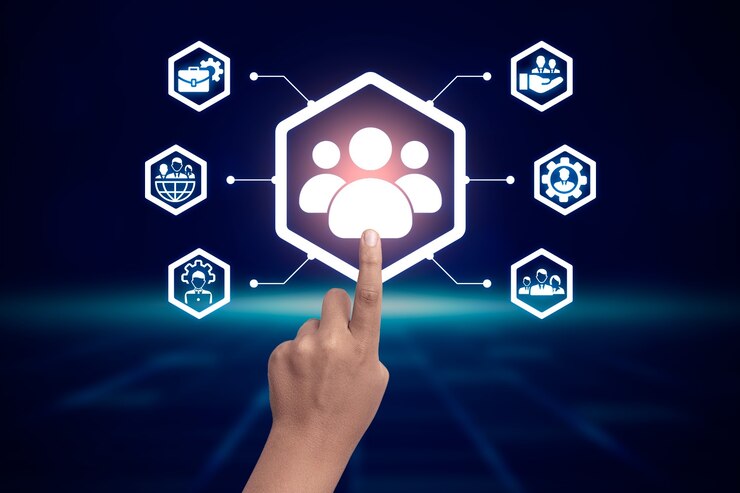The Changing Face of HR: Adapting to Modern Workplace Dynamics
Introduction
In the realm of business, Human Resources (HR) has undergone a significant transformation in recent years. As workplaces evolve, driven by technological advancements, globalization, and changing employee expectations, the role of HR professionals becomes increasingly crucial. In this article, we delve into the changing landscape of HR, exploring how it adapts to the modern workplace dynamics to foster productivity, engagement, and organizational success.
Understanding Modern Workplace Dynamics
The modern workplace is a dynamic ecosystem characterized by rapid changes, diverse workforce demographics, and technological innovations. Adapting HR Strategies for Digital Work Environments: With the rise of remote work and virtual teams, HR must leverage digital tools and platforms to facilitate seamless communication, collaboration, and employee engagement.
The Role of HR in Employee Well-being
Employee well-being has emerged as a top priority for organizations seeking to enhance productivity and foster a positive work culture. Promoting Work-Life Balance: HR plays a pivotal role in promoting work-life balance by implementing flexible work arrangements, wellness programs, and initiatives that support mental health and resilience.
Embracing Diversity and Inclusion
In today’s globalized world, diversity and inclusion are not just buzzwords but essential components of a successful organization. Creating Inclusive Work Cultures: HR drives initiatives to foster diversity and inclusion, such as bias training, diverse recruitment strategies, and creating safe spaces for open dialogue and collaboration.
Harnessing Data for Strategic Decision-Making
Data-driven decision-making has revolutionized HR practices, enabling professionals to glean insights and trends that inform strategic initiatives. Utilizing People Analytics: HR leverages people analytics to identify patterns, predict future trends, and optimize talent acquisition, retention, and development strategies.
Adapting Recruitment and Onboarding Processes
The recruitment and onboarding processes have evolved to meet the demands of a rapidly changing workforce landscape. Virtual Recruitment Strategies: HR adopts virtual recruitment strategies, leveraging video interviews, AI-powered screening tools, and virtual onboarding platforms to streamline processes and attract top talent.
Fostering Continuous Learning and Development
In a knowledge-based economy, organizations must invest in continuous learning and development to remain competitive. Implementing Personalized Learning Initiatives: HR designs personalized learning initiatives, including online courses, mentorship programs, and skill development workshops, to empower employees to upskill and adapt to evolving job roles.
Navigating Hybrid Work Models
The emergence of hybrid work models, blending remote and in-person work, presents unique challenges and opportunities for HR professionals. Supporting Hybrid Work Arrangements: HR develops policies and practices that support hybrid work arrangements, emphasizing clear communication, equitable access to resources, and flexible scheduling options.
Addressing Employee Burnout and Stress
Employee burnout and stress have become pervasive issues in today’s fast-paced work environments, impacting productivity and morale. Implementing Stress Management Programs: HR implements stress management programs, promotes a culture of self-care, and provides resources such as counseling services and wellness seminars to support employees’ mental and emotional well-being.
Ensuring Compliance and Ethical Practices
Amidst regulatory changes and increasing scrutiny, HR plays a critical role in ensuring organizational compliance and ethical practices. Ethical Leadership and Governance: HR promotes ethical leadership and governance, upholds integrity and transparency in all HR processes, and implements robust compliance mechanisms to mitigate risks and uphold organizational values.
Leveraging Technology for HR Automation
Technology continues to revolutionize HR operations, offering opportunities for automation, efficiency, and enhanced user experience. Adopting AI and Robotics: HR embraces AI-powered tools and robotic process automation (RPA) to streamline administrative tasks, enhance decision-making, and deliver personalized employee experiences.
Promoting Collaborative Culture and Team Dynamics
Effective collaboration and teamwork are essential for driving innovation and achieving organizational goals. Building High-Performing Teams: HR fosters a collaborative culture by promoting teamwork, facilitating cross-functional collaboration, and recognizing and rewarding collective achievements.
Enhancing Employee Engagement and Retention
Employee engagement and retention are critical metrics for organizational success, influencing productivity, morale, and talent acquisition efforts. Measuring Employee Engagement: HR implements regular feedback mechanisms, surveys, and engagement analytics to measure employee satisfaction, identify areas for improvement, and implement strategies to boost morale and retention.
Supporting Leadership Development
Strong leadership is vital for navigating challenges, driving change, and inspiring organizational growth. Developing Leadership Pipeline: HR invests in leadership development programs, identifies high-potential talent, and provides opportunities for mentorship, coaching, and leadership training to groom future leaders and foster succession planning.

FAQs
How is HR evolving in response to modern workplace dynamics?
- HR is evolving by embracing technology, fostering diversity and inclusion, promoting employee well-being, and leveraging data-driven insights to inform strategic decision-making.
What strategies can HR adopt to support hybrid work arrangements?
- HR can support hybrid work arrangements by implementing clear communication channels, providing equitable access to resources, and offering flexible scheduling options to accommodate varying work preferences.
Why is employee engagement important for organizational success?
- Employee engagement is important as it influences productivity, morale, and retention rates, ultimately impacting organizational performance and competitiveness.
How can HR address employee burnout and stress in the workplace?
- HR can address employee burnout and stress by implementing stress management programs, promoting work-life balance, and providing resources such as counseling services and wellness seminars.
What role does HR play in fostering diversity and inclusion?
- HR plays a crucial role in fostering diversity and inclusion by implementing bias training, diverse recruitment strategies, and creating inclusive work cultures that value and celebrate differences.
How does HR leverage technology for automation and efficiency?
- HR leverages technology such as AI and robotics to automate administrative tasks, streamline recruitment processes, and deliver personalized employee experiences.
Conclusion
As the business landscape continues to evolve, HR must adapt and innovate to meet the changing needs and expectations of the workforce. By embracing technology, fostering inclusivity, prioritizing employee well-being, and championing ethical practices, HR professionals can drive organizational success in the dynamic and ever-evolving modern workplace.




